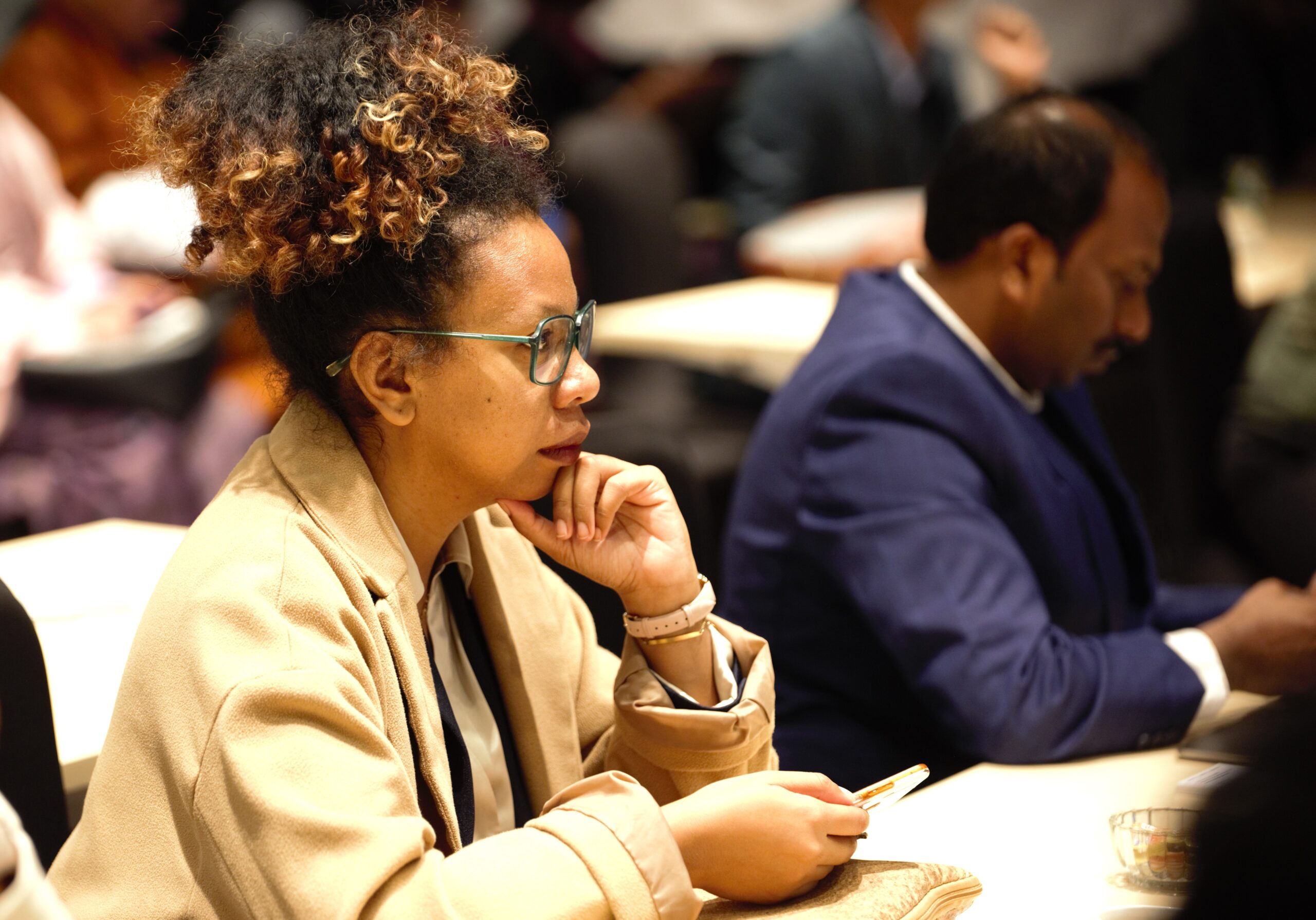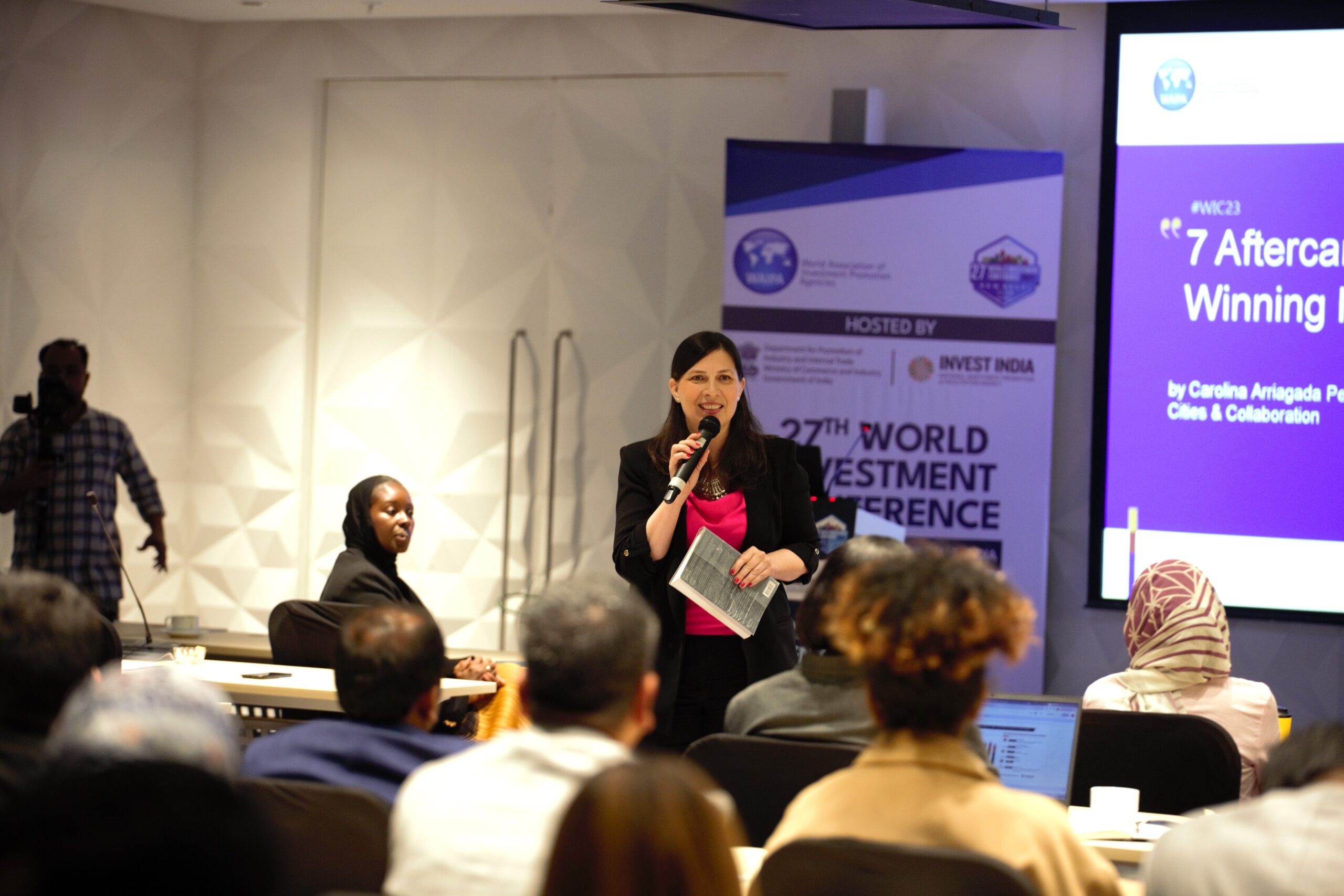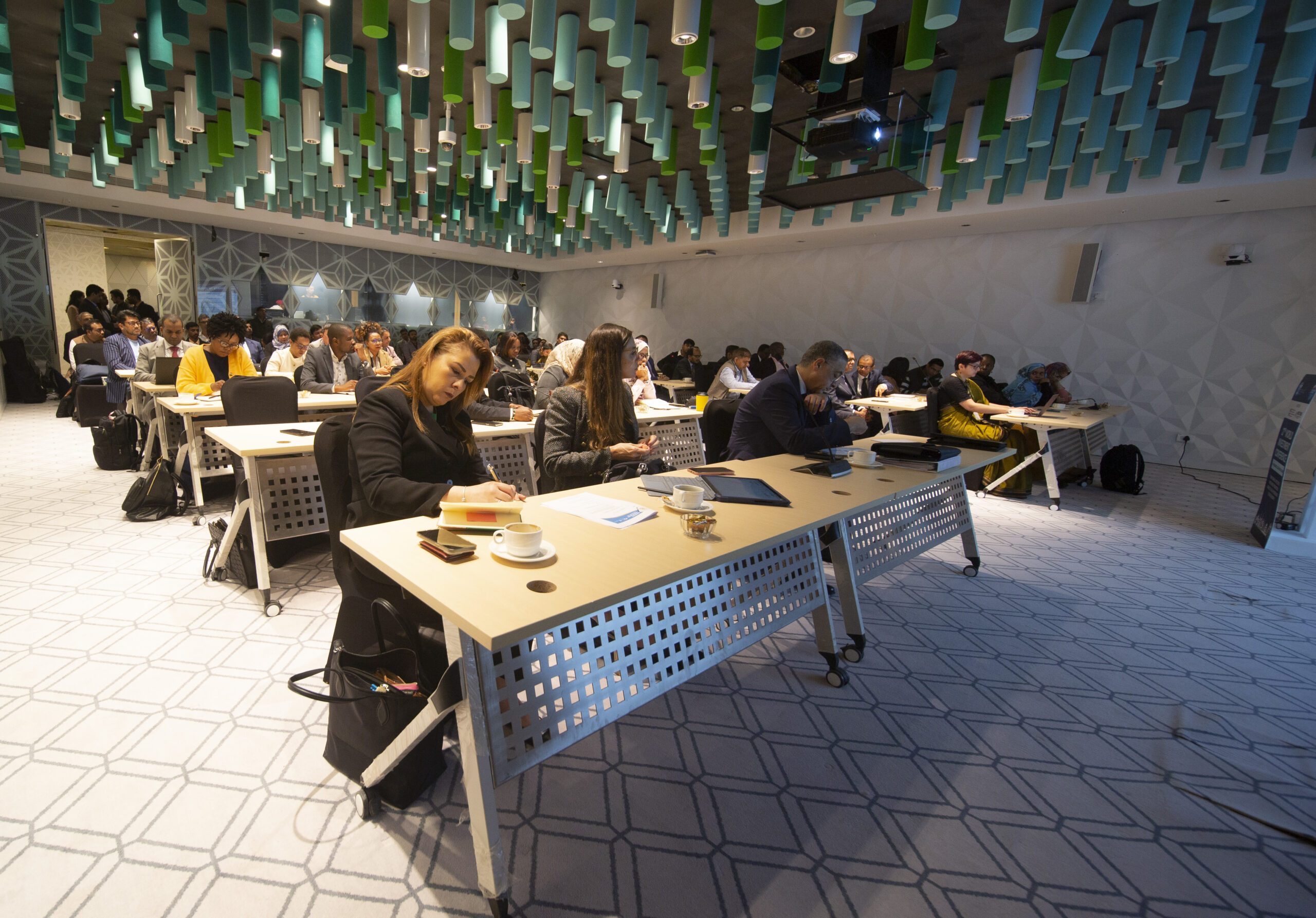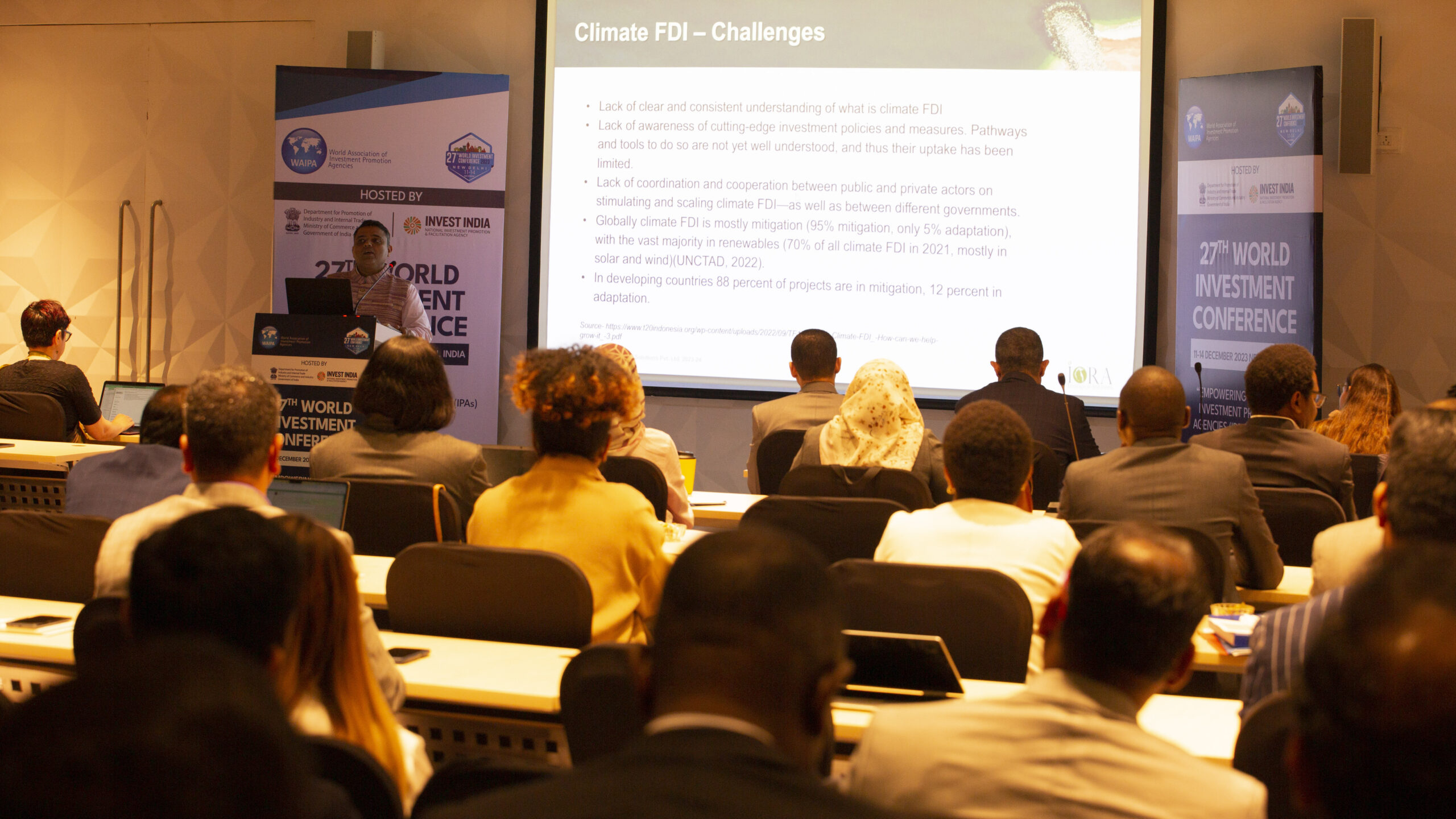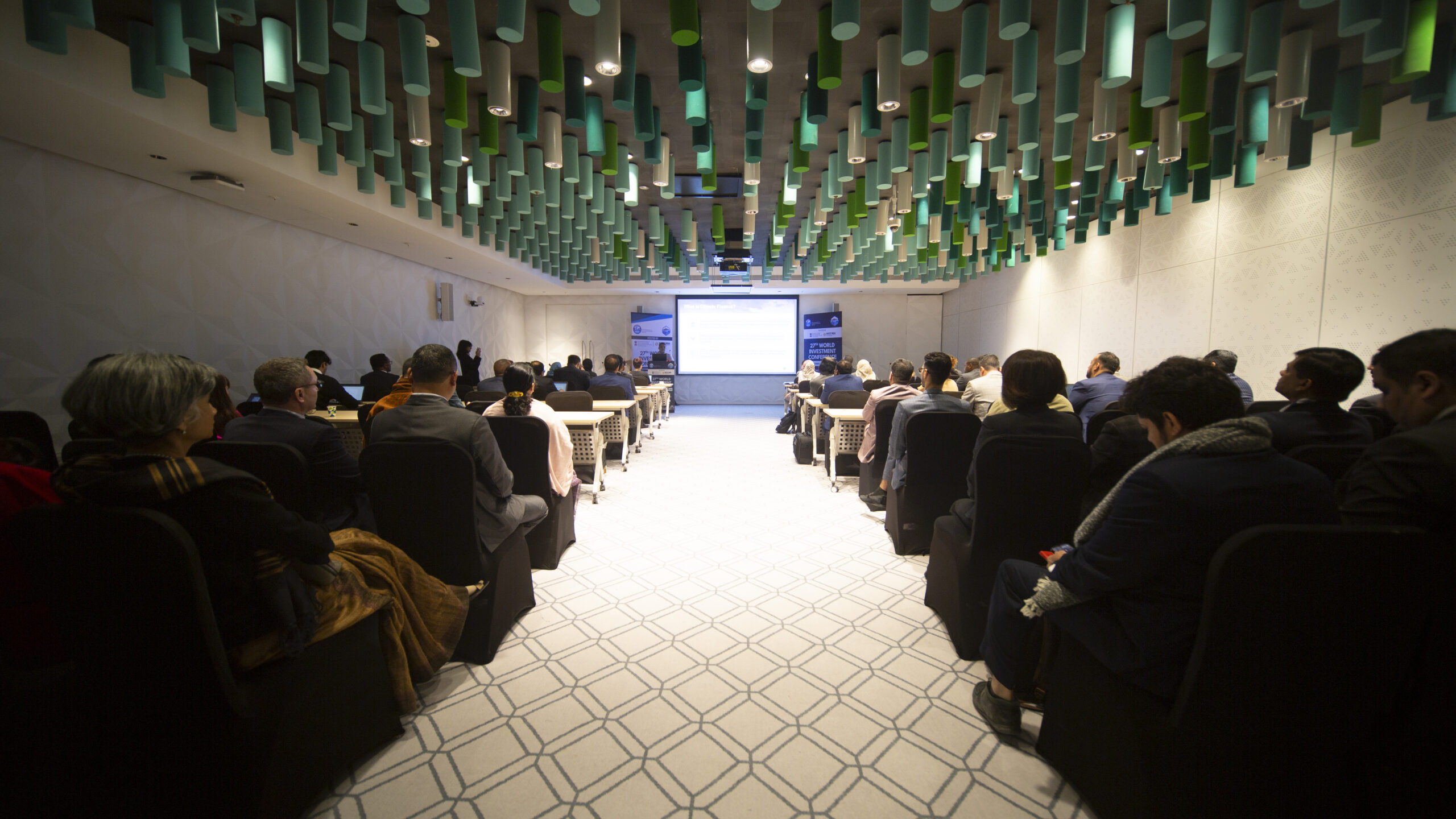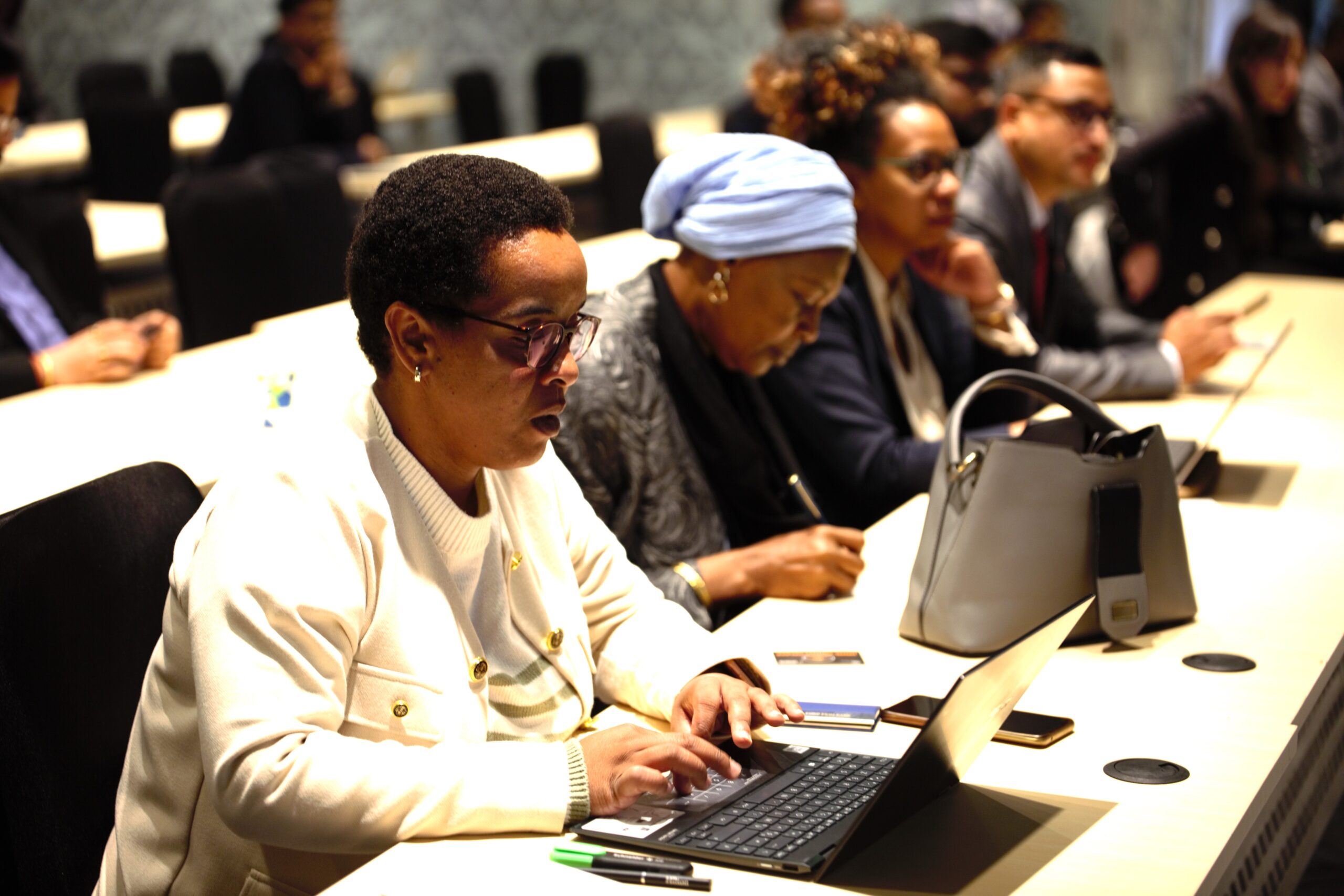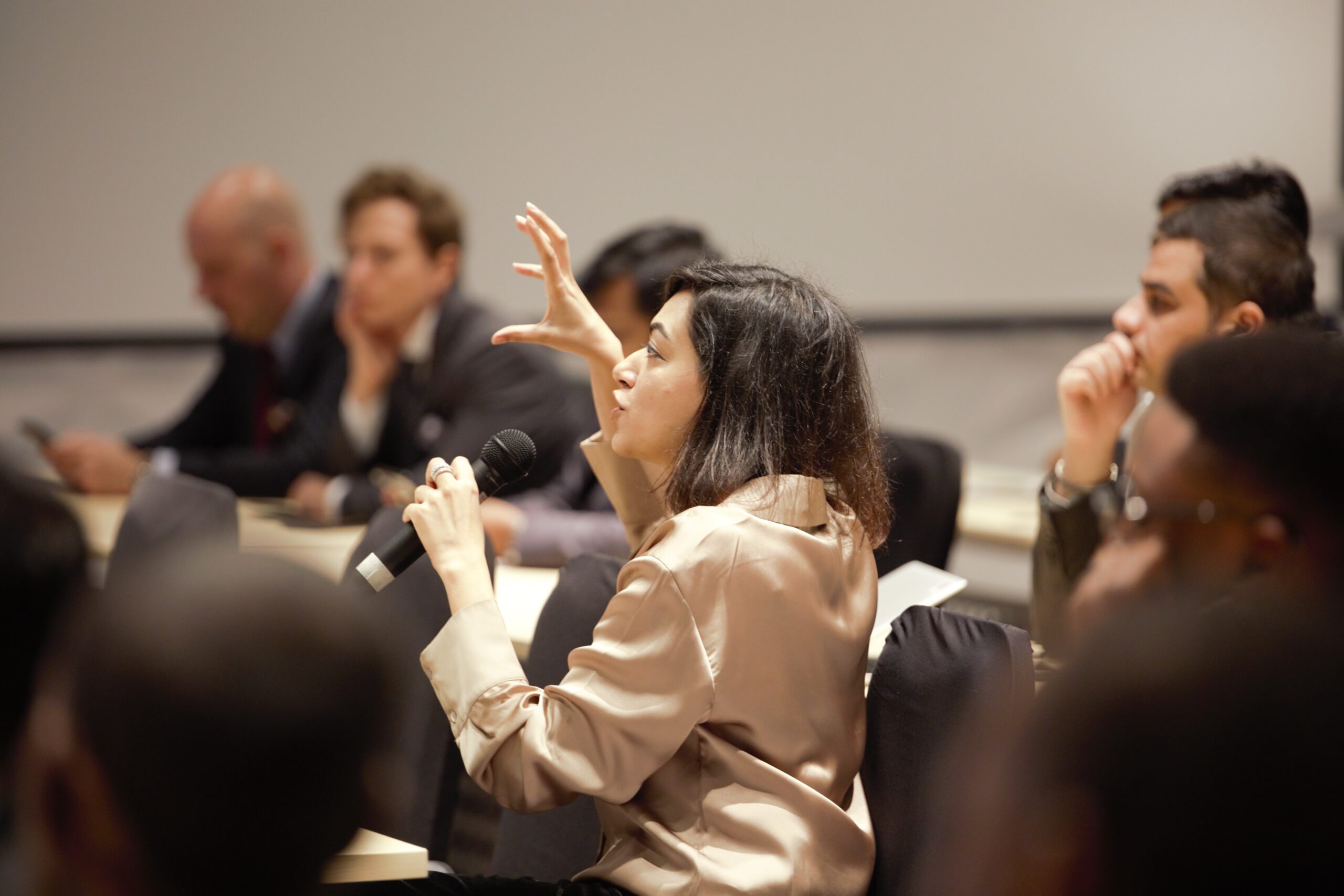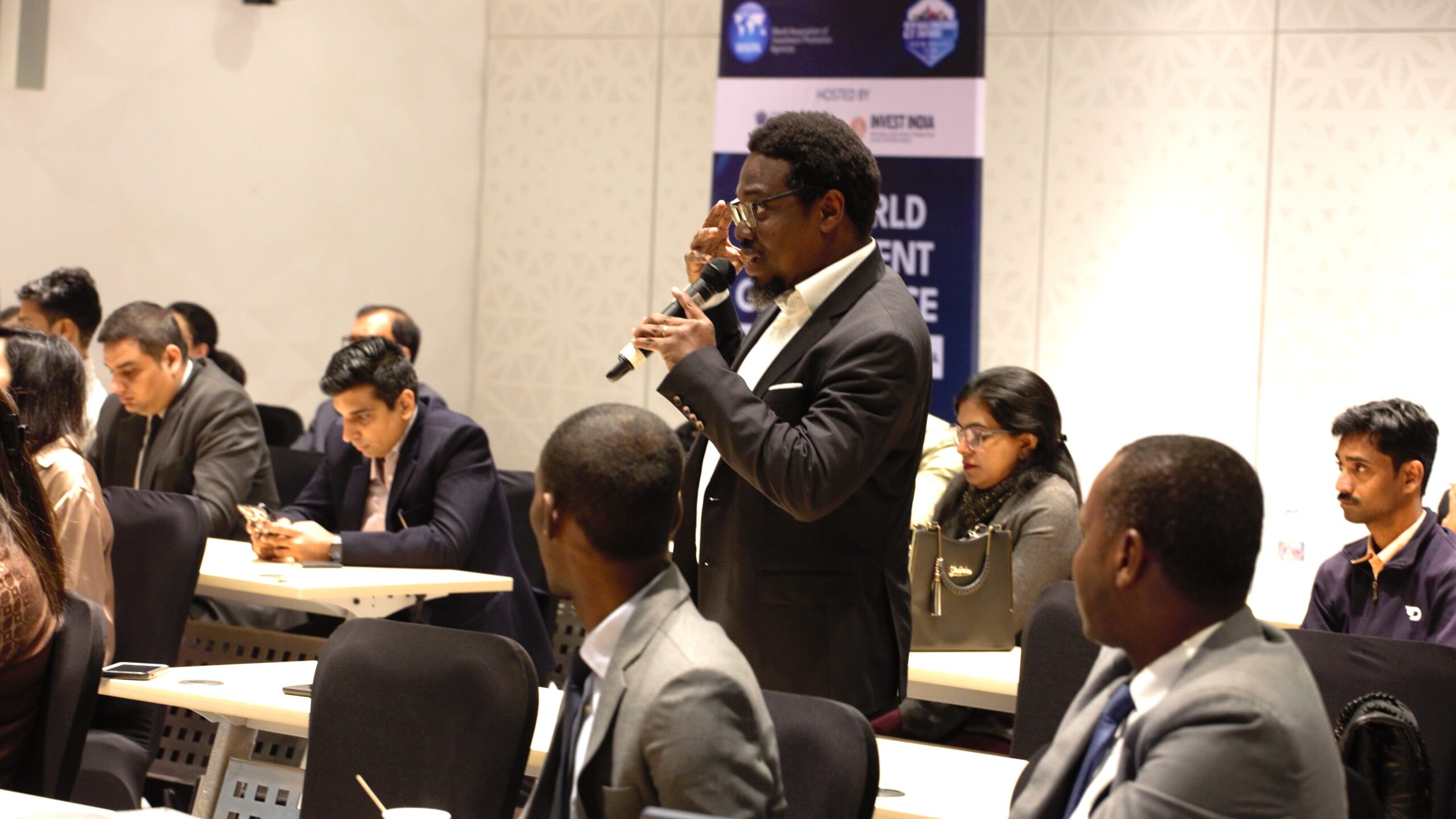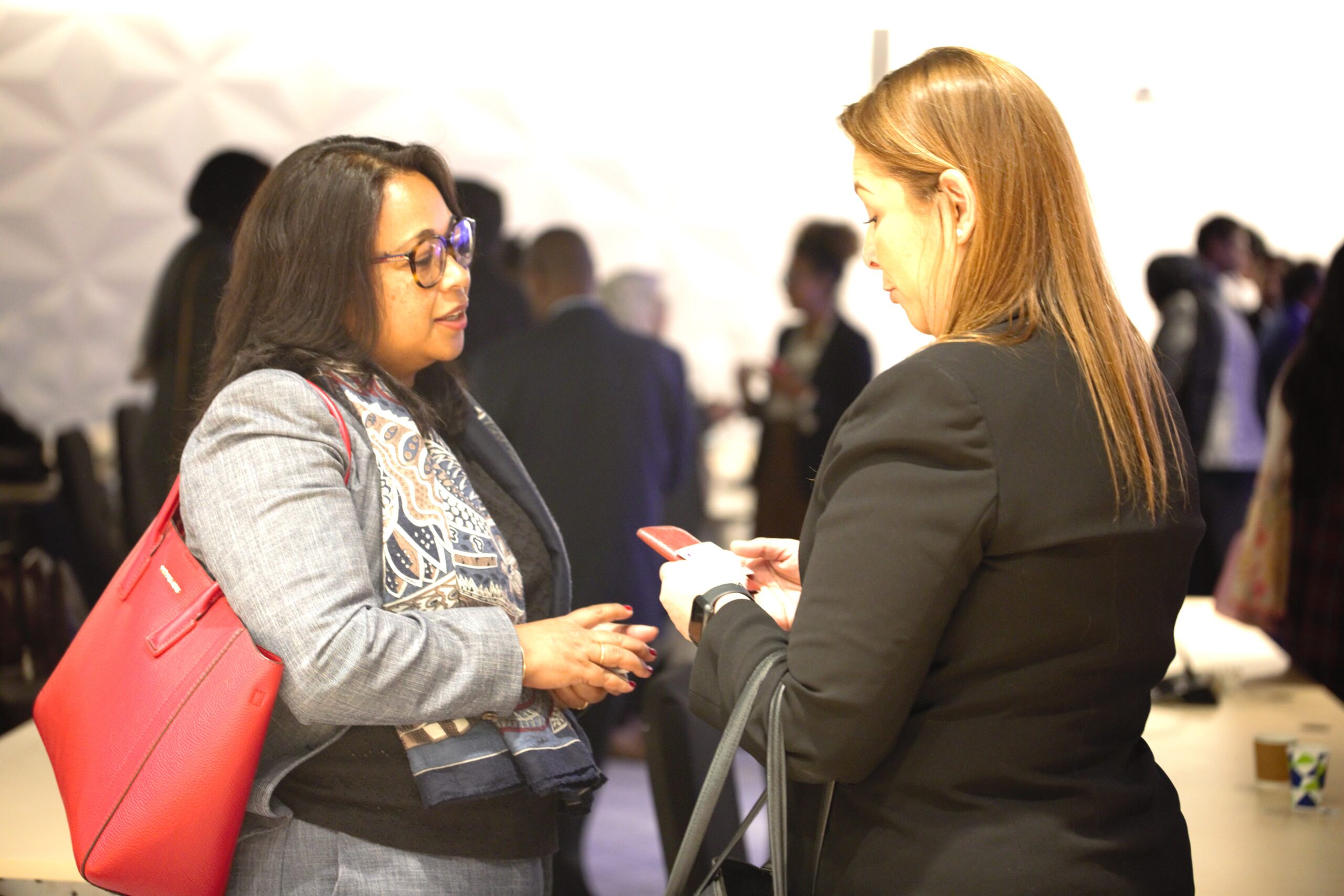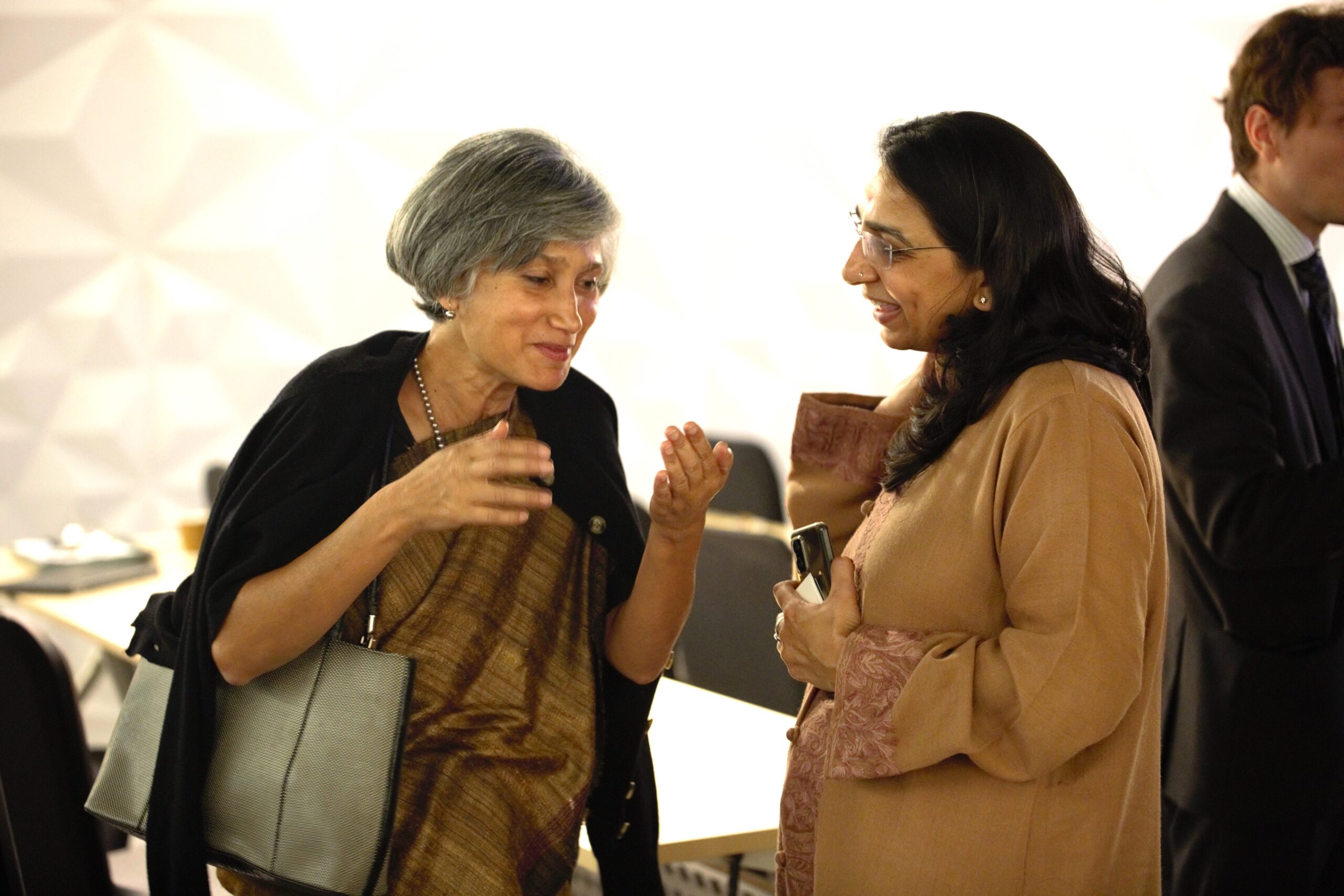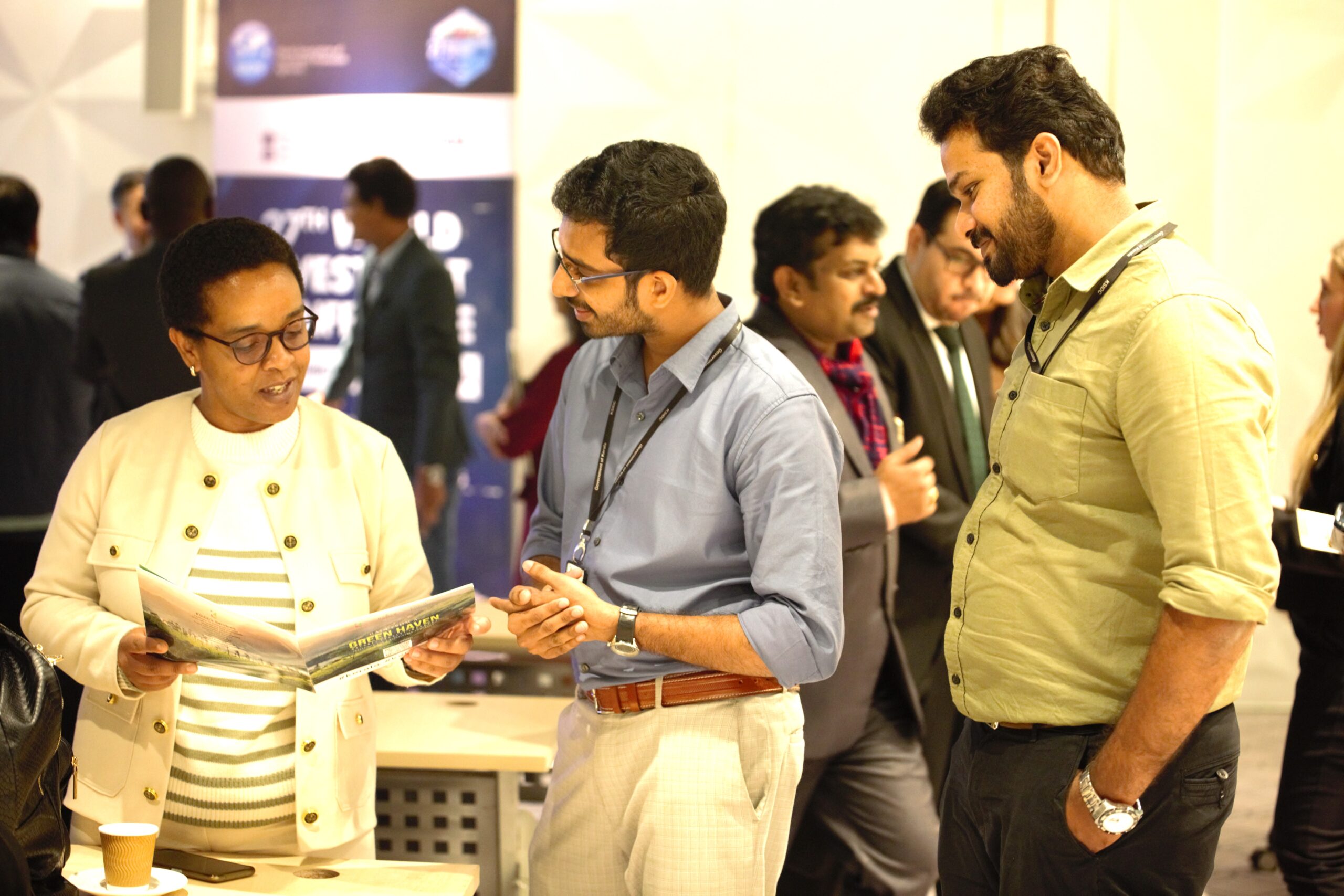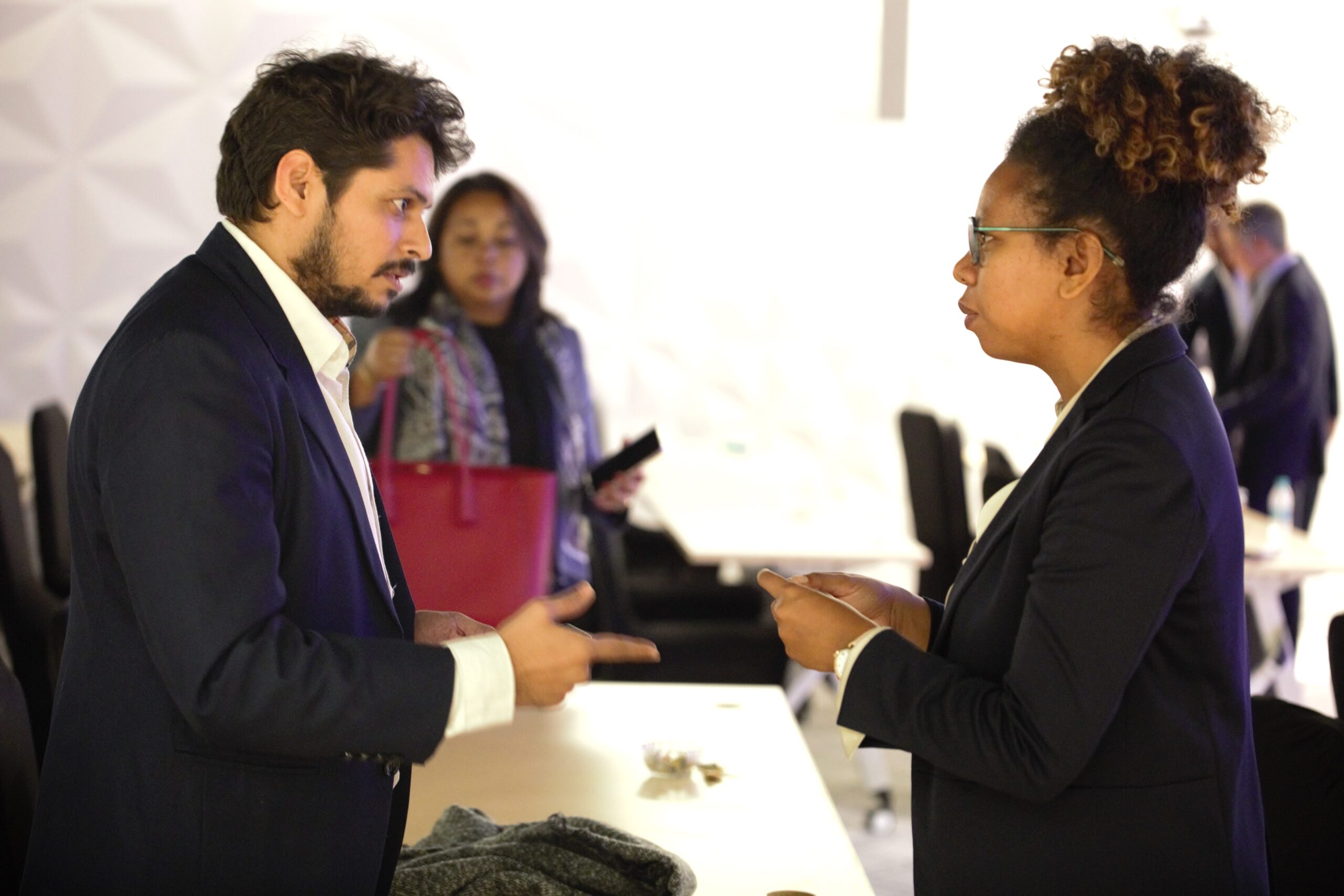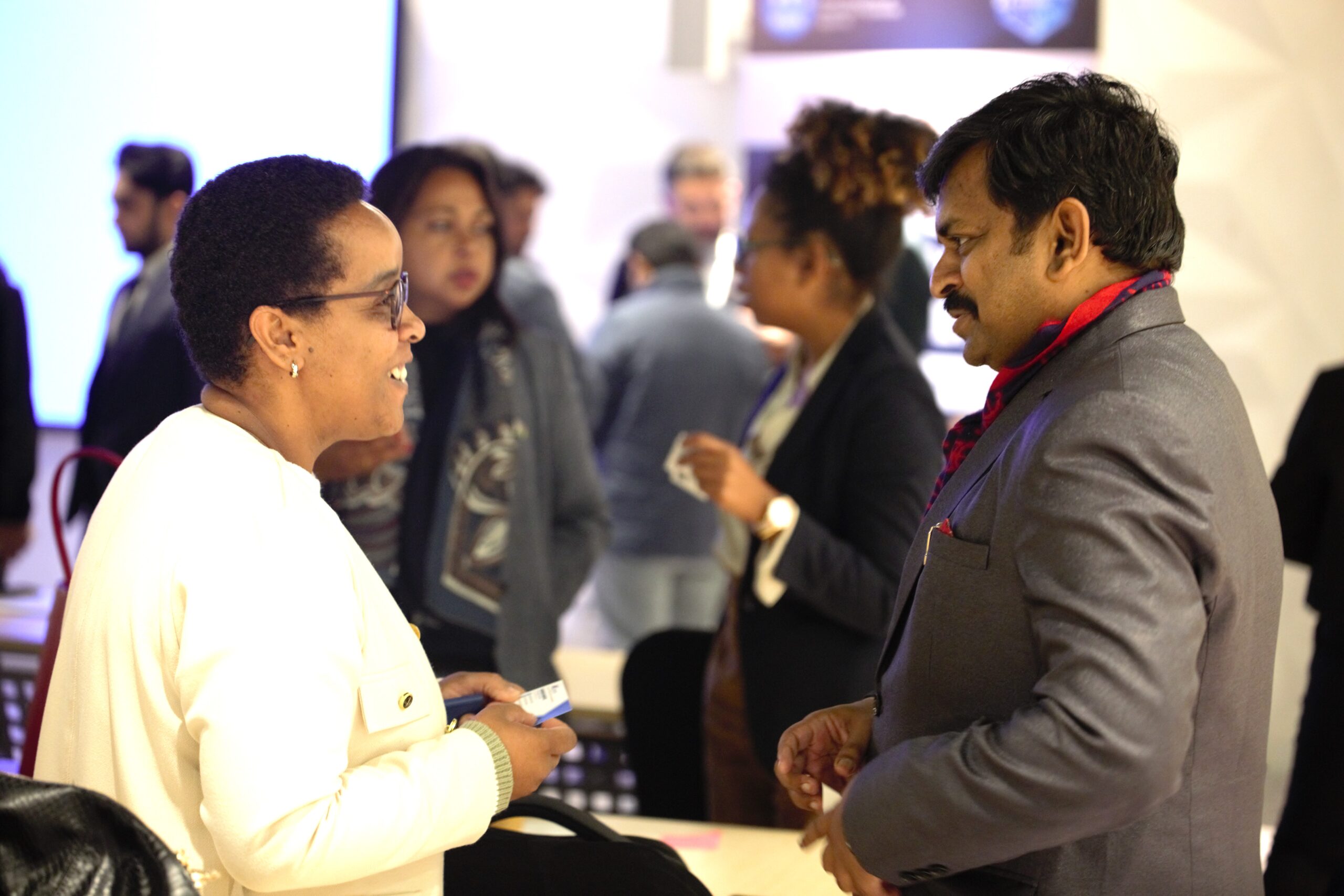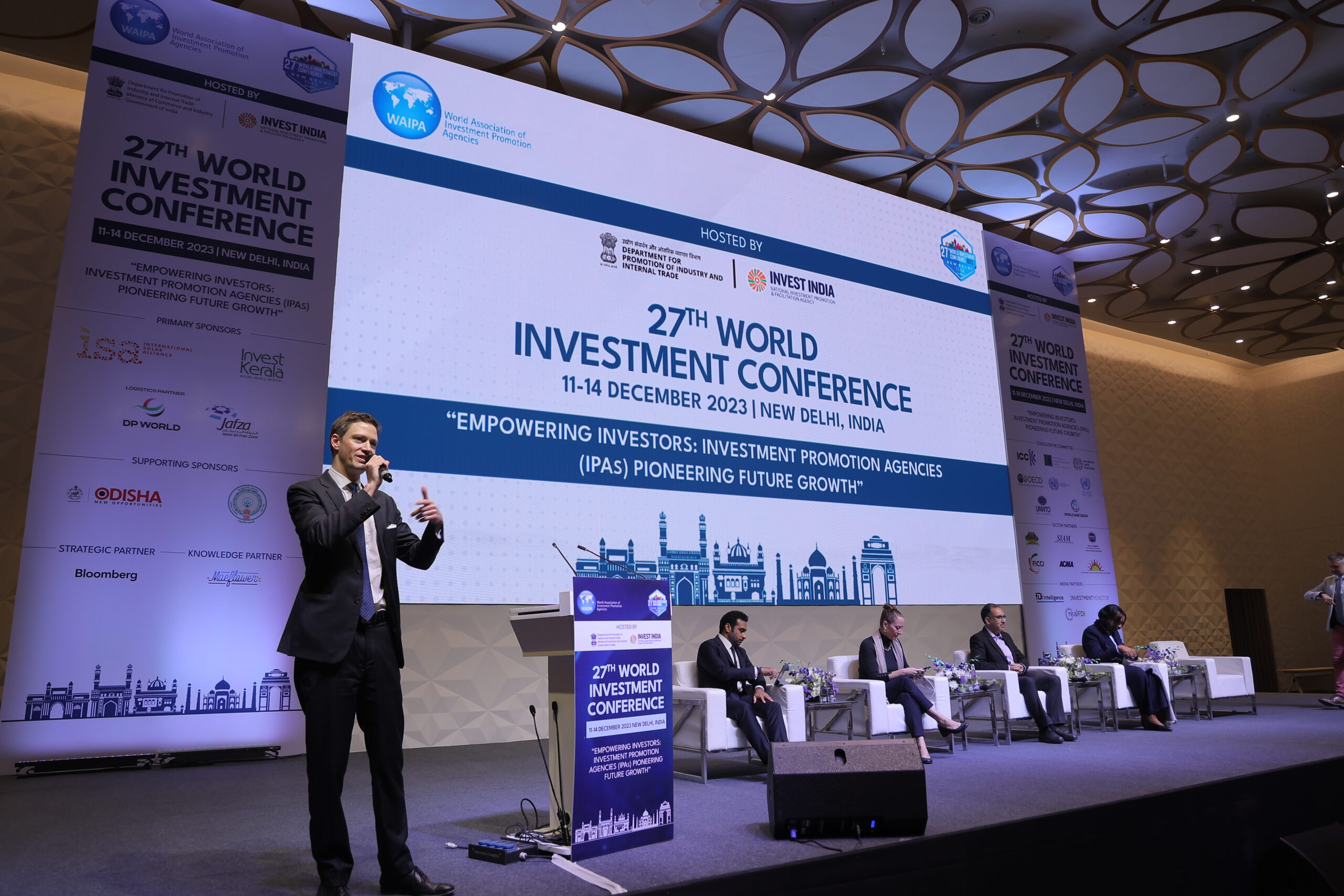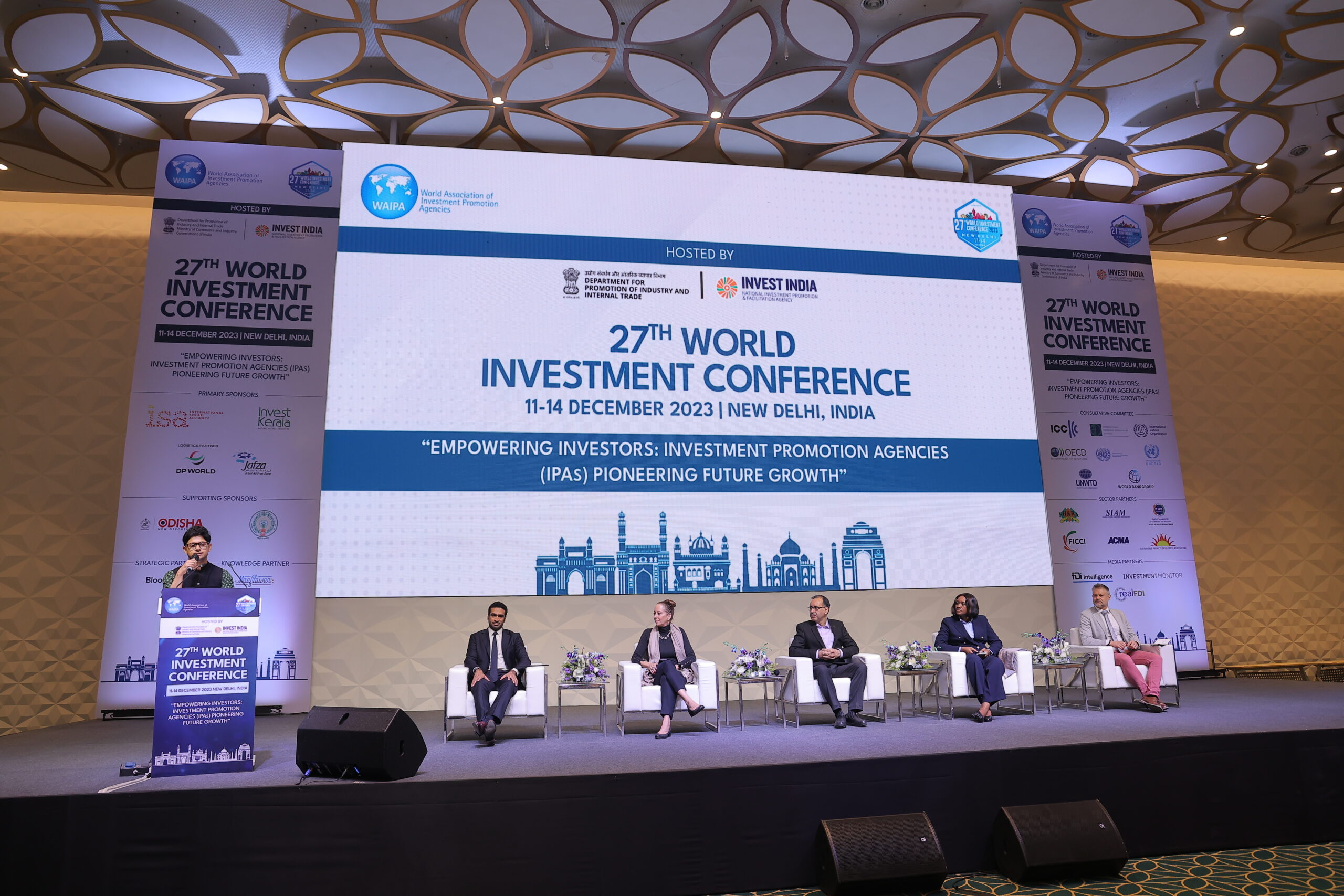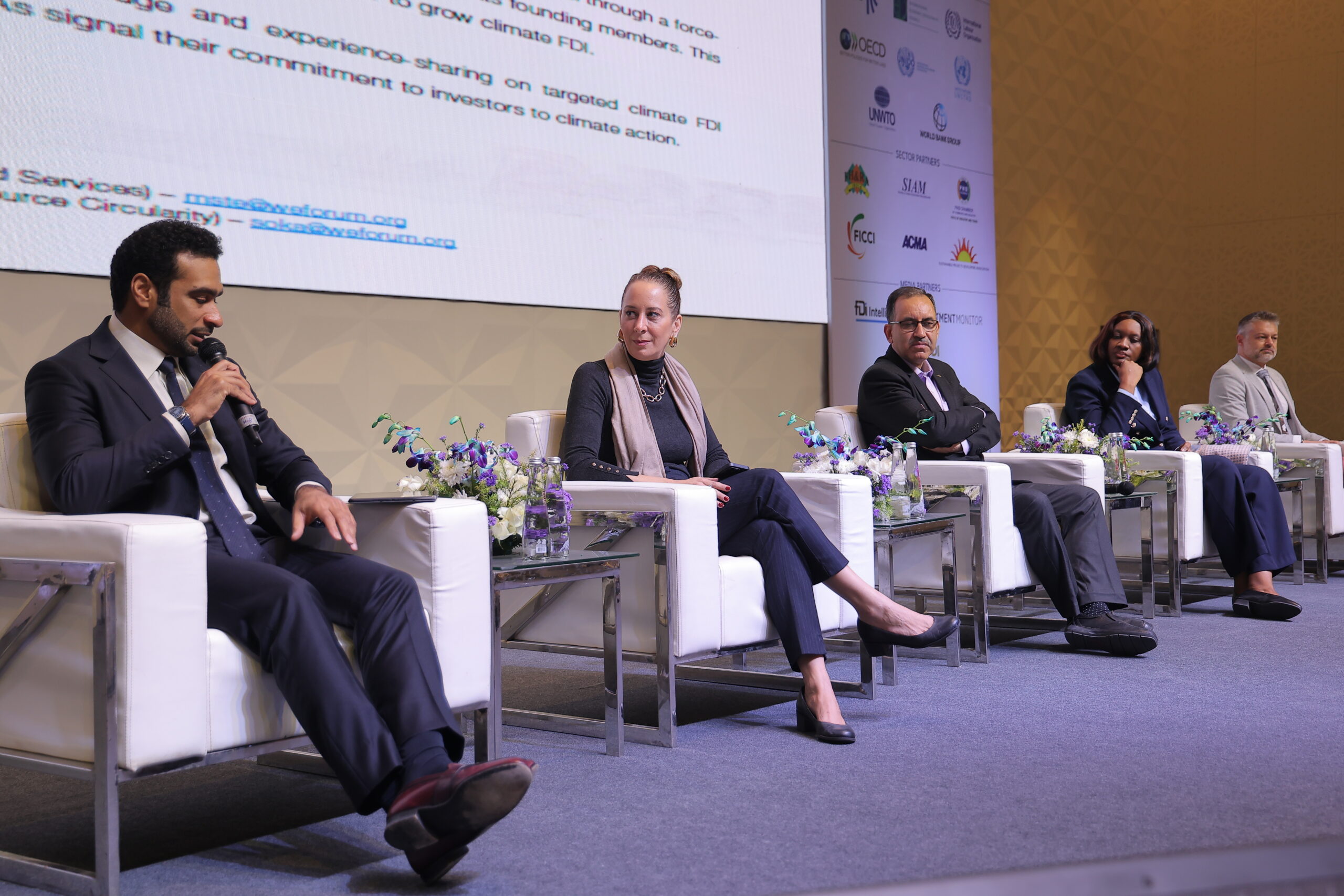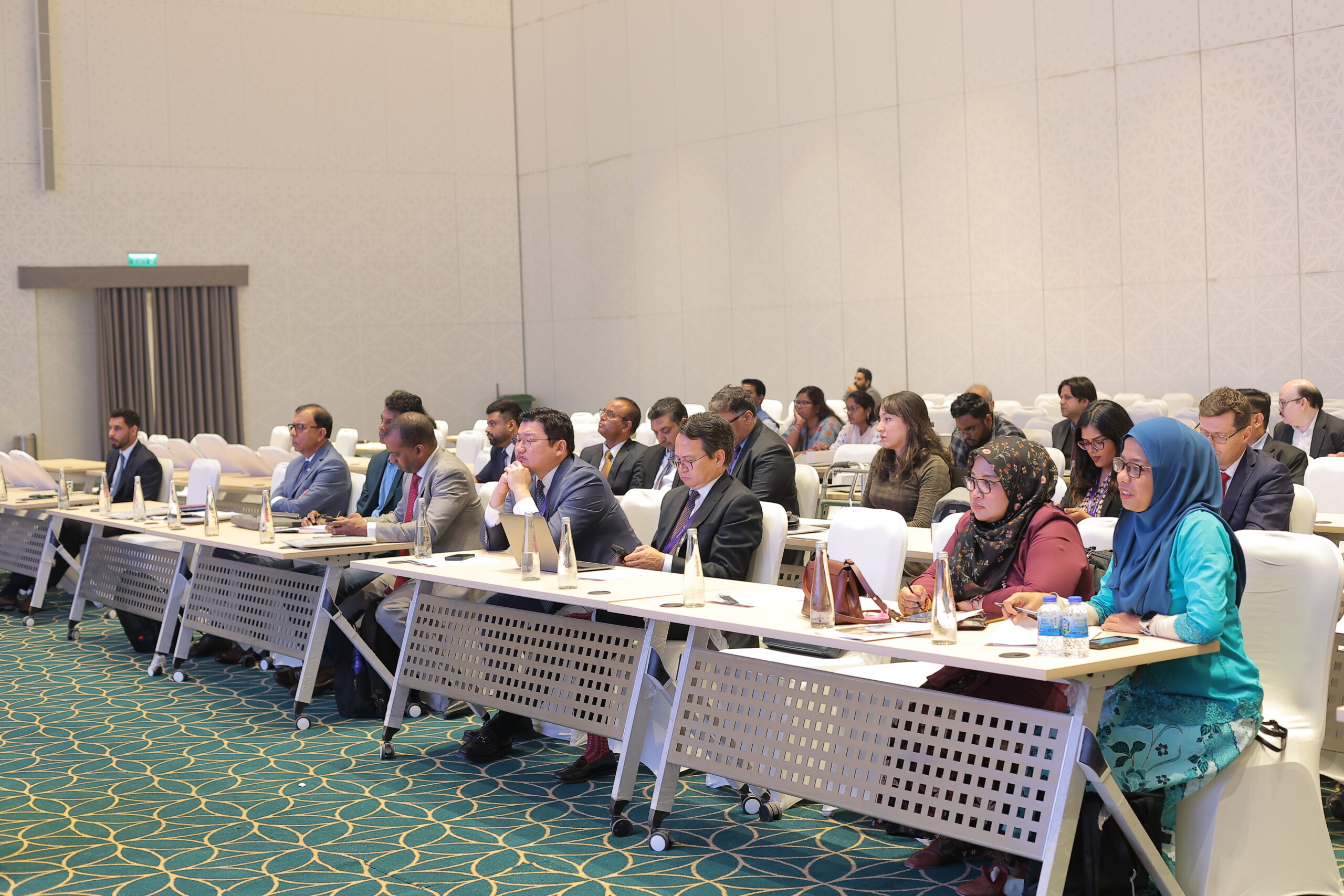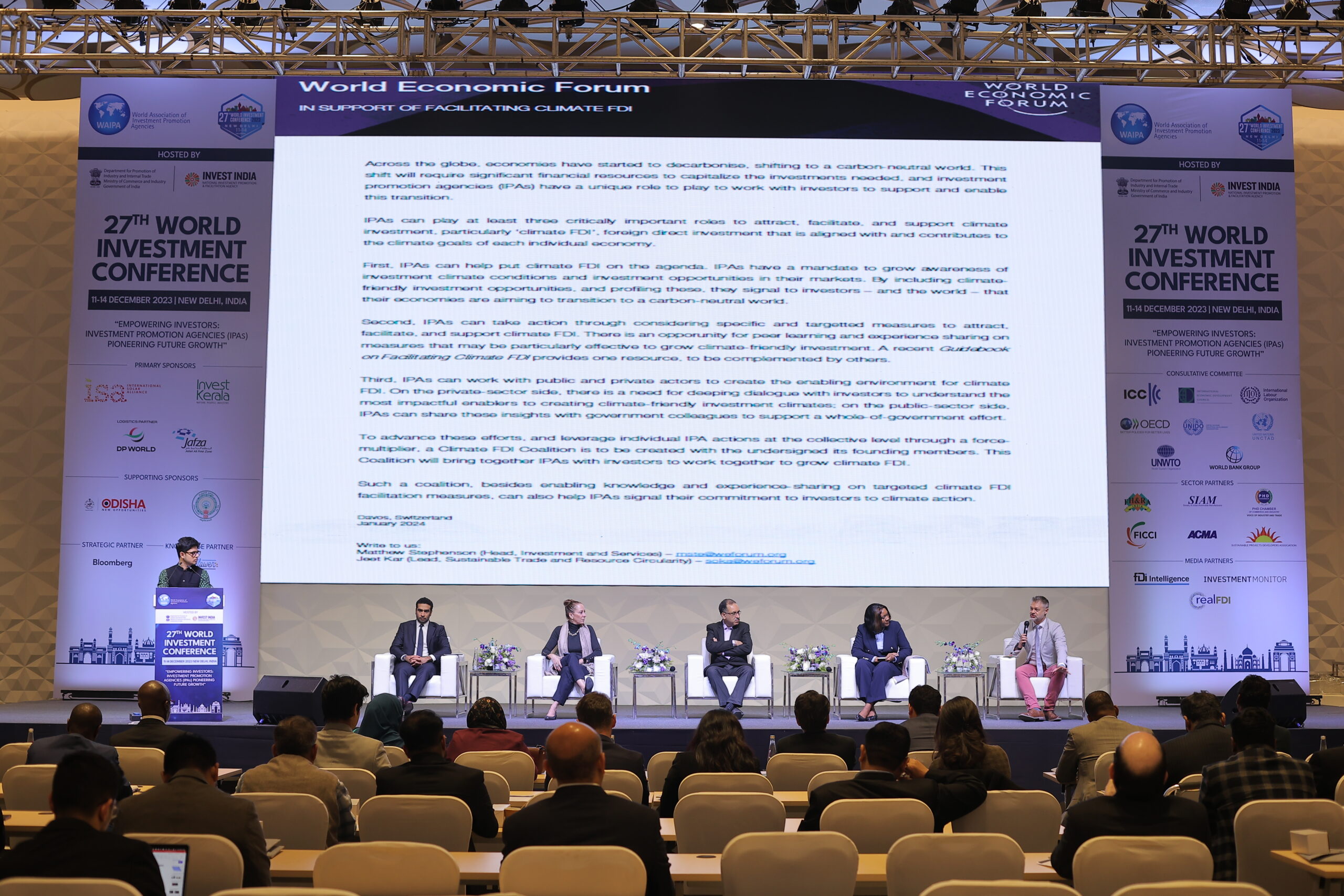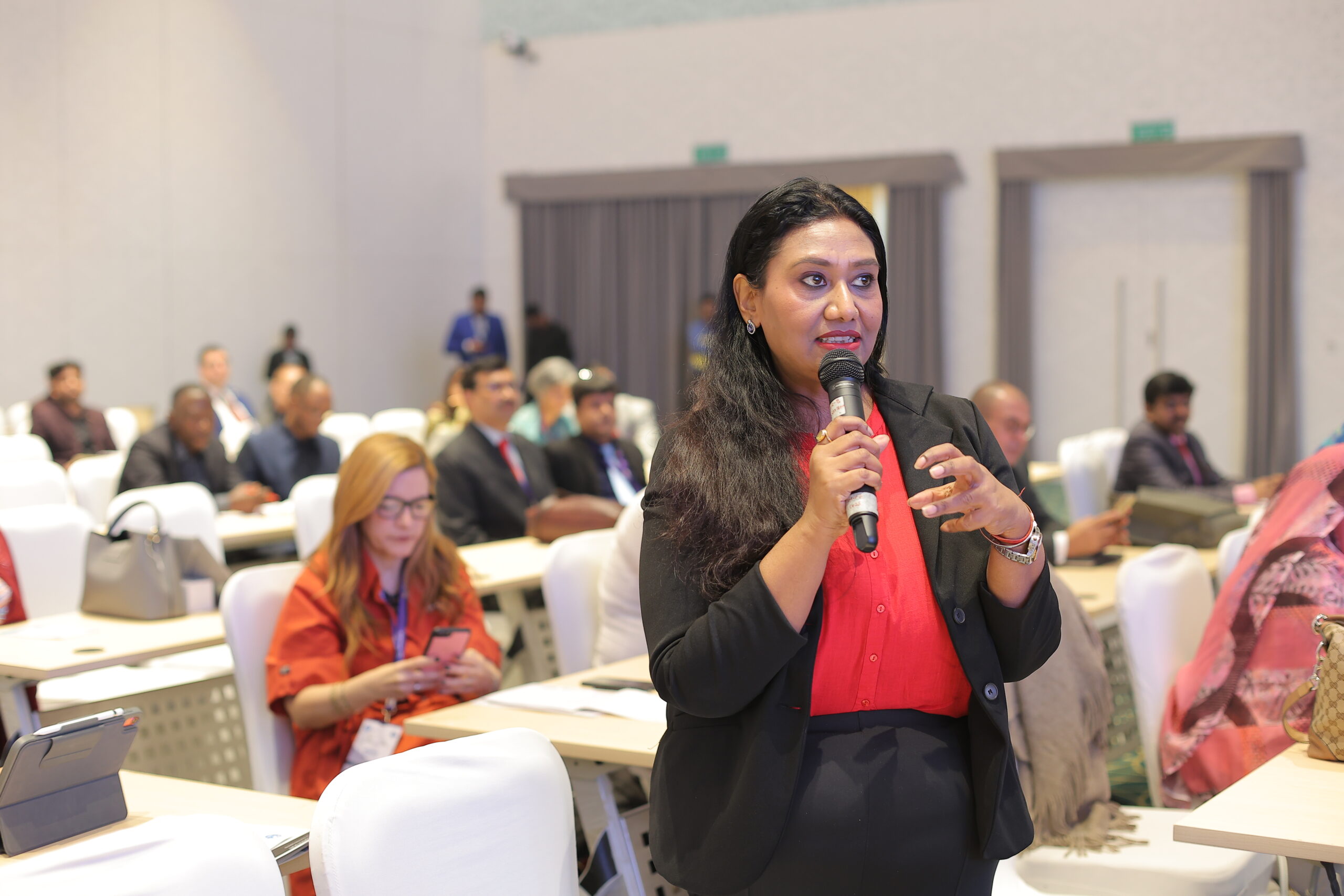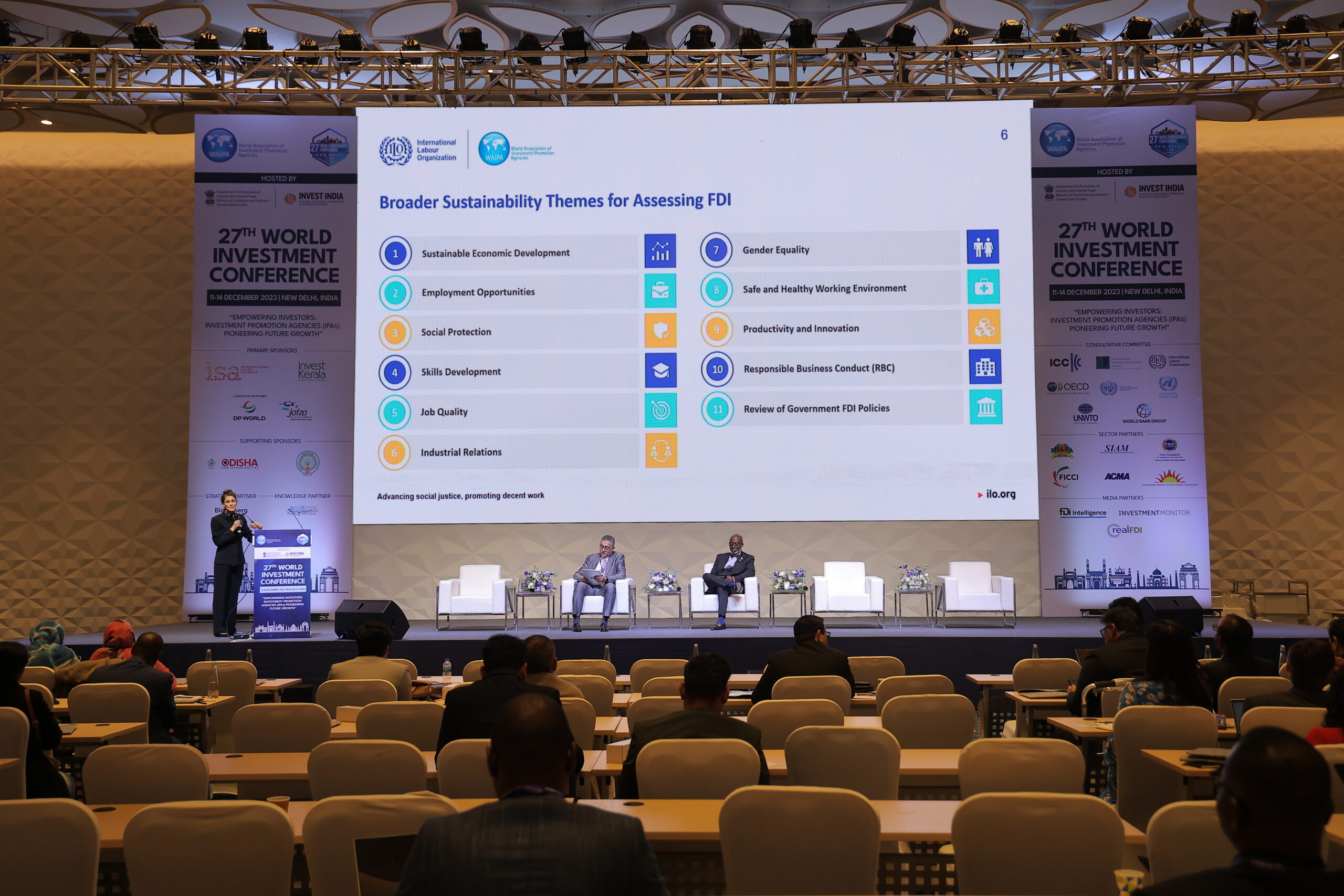The first day of the conference was dedicated to raise the awareness of IPA members on recent trends related to Investment in cooperation with WAIPA strategic partners with three masterclasses as follow:
- The first session led by Iora Ecological Solutions Pvt Ltd which is an environmental advisory firm in India, the session explored how climate change affects the global economy and how to finance climate action. It highlighted the urgency of climate commitments and the diversity of climate financing models. It also emphasized the need for attractive policies and models to draw climate investment and the untapped potential of climate FDI. They emphasized that a lot of funding is concentrated in mitigating the impact of climate change. The adaptation model is more expensive but there is a need for investment in this area. Small economies need external investment to implement adaptation measure to tackle climate change.
At the end, they agreed on the steps that should be taken to scale climate FDI which are summarized on: Assessment & Strategy Development, Policy and Regulatory Support, Stakeholder Engagement and Partnerships, Capacity Building & Infrastructure Development, Access to Finance and Investment Facilitation, Monitoring & Evaluation Mechanisms to assess the impact.
- The second session on Unlocking Institutional Investments led by Rahul Agrawal, Institutional Investment Expert who mentioned that Institutional investors oversee $120 trillion in global assets, emphasizing returns and risk mitigation. In which he emphasized on mobilizing Institutional Capital in Infrastructure, an emerging asset class benefitting from fund capital. CPPI, with 25% of its $480 billion invested, prioritizes infrastructure. Brookfield Infrastructure Partners focuses on property, renewable energy, and private equity. Key insights for IPAs include understanding institutional investors, replicating successful models, global risk allocation, sector identification, long-term perception, initial project costs, prioritizing positive experiences, acknowledging limitations, and meticulously creating investment models aligned with investor strategies for global exposure. Engaging in international fund events and studying past investments are crucial components.
The session elaborated its discussion by Case studies on Canada Pension Plan Investment Board, Investment in Associated British Ports, Brookfield Infrastructure Partners L.P. LP India Investment Experience. For example, India has been able to reduce costs in infrastructure by bringing in capital in the form of funds. Infrastructure has done especially well during inflation, CPPI (Canada Pension Plan Investment Board), an LP – very mature in investing in infrastructure – significant investment in infrastructure (25% of the $480 billion) – Have significantly shifted their focus towards investing in infrastructure over the years. Additionally Brookfield Infrastructure Partners, a GP’s strategy has been property, renewable energy, infrastructure and private equity.
At the end of the session, they addressed some recommendation to IPA to understand what ‘institutional investors”’ are, closely study institutional investors and make profiles on them, Identify sectors models where certain risks don’t exist, creating investment models for funds, create asset, find the right funds that have and can invest in the specific asset – how this particular model will fit in the investor’s strategy, speak in multiple global events of funds and study every asset that the investor has invested in before.
- The Third Session addressed by Andreas Dressler, Managing Director, FDI Center on how to prepare Investor Pitches, The session was interactive and allowed investment professionals from across the globe to engage in discussions on how each of them approach an investment opportunity. Mr. Dressler walked the audience through the dos and donts of investment pitches, with a continuous focus on understanding the needs of the investors, and providing only relevant and focused, solution oriented data in investment pitches.
International Organization Interactive Discussion
- Session by World Economic Forum (WEF)
This session presented the idea of a Coalition of IPAs for Climate (CIPAC). The Coalition would be a community of practice to enable knowledge sharing on facilitating climate FDI. It would also help participating agencies demonstrate and signal their leadership in this space, including to investors that their economy welcomes green investment. IPAs and investors who attended this session shared their views on how such a coalition could work and what could be its objectives, and discussed its potential launch in 2024.
The session illuminated the profound impact of investment in the current global landscape of trade. The session highlighted how strategic, high-quality investments are pivotal in fostering sustainable growth.
The participants agreed that IPAs need a comprehensive understanding of climate policies and regulations within their respective countries. This knowledge is crucial for attracting investors. IPAs must communicate the needs of the private sector to the government. To instill confidence in investors, IPAs must transparently articulate their climate policies and regulations, considering investors may think since this is a new market and risks are exits.
Moreover, the session referred to the importance of corporate advisory group that helps to reach out to countries and flag issues for government to take necessary changes to facilitate private investment and mentioned that solar applications need to be promoted, especially in Agri. and health to accelerate renewable growth and ensure energy transition.
- Session by United Nations Industrial Development Organization (UNIDO).
This session that led by UNIDO experts Mr. Stefen and Ms. Carolina discussed the state-of-play, challenges, and opportunities of investment promotion and facilitation in African, Caribbean and Pacific (ACP) countries, presenting the insights of a joint survey conducted by WAIPA and UNIDO. The session displayed a model explaining the realities and complexities faced by ACP IPAs in their work as well as recommendations and practical tools to enhance their effectiveness and align their efforts with the Sustainable Development Goals (SDGs). It allowed a debate with participating IPAs on pressing areas of digitalization, SDG investment monitoring and investment aftercare.
Mr. Stefen mentioned that there is no clear logical targeting strategy aligning FDI sector targets, ACP’s digitalisation is in its infancy, lacking certification in many areas and Capacity and technical capability gaps are there. Additionally, Ms. Carolina indicated that IPAs from developed countries are better equipped than ones from ACP countries and mentioned three pillars should be there to accelerate digitalization as follows:
- Digitalization first (answers the question what should be done digitally).
- Partnership-led (what partnerships amplify reach).
- New value generating (how can new value surfacing and how can it be mainstreamed).
At the end of the session, Mr. Stefen provided some recommendation for ACPS: Increase effectiveness of targeting efforts, Unlock FDI potential by focusing on enhancing project finance and business generating skills and focus on vision 2030 (leverage quality FDI to advance their development).
- Session by International Labour Organization (ILO)
Under the moderation of Emily Sims – Senior Specialist, International Labour Organization ILO. This session tackled SDG 8 on inclusive economic growth and decent work as it is a core to any investment project. ILO and WAIPA have developed KPIs to help IPAs enhance FDI impacts on more and better jobs; elevate country’s branding as a sustainable investment hub; and attract longer-term investors. Followed by experience sharing and good practices case studies from the Egyptian IPA (GAFI) and Ghana IPA (GIPC), which provided further concrete action ideas for your IPA.
Mr. Yofi- GIPC’s CEO, spoke about the notable shift in his government strategy, with a departure from direct incentives to investors in favor of indirect incentives designed to ultimately benefit the broader populace. The impact assessment of projects took a holistic approach, considering not only returns but also development-based criteria, including the generation of jobs, their nature, advantages, and disadvantages, all with a focus on achieving shared growth and addressing inequalities. And he mentioned that Sustainability themes for assessing FDI are: sustainable economic development, employment opportunities, social protection, skills development and gender equality. At last he referred to the importance of data collection, partnerships with national and international partners and realigning operations.
Mr. Hossam – GAFI’ CEO, referred to the endeavors stem from the Egyptian government’s recognition of the vital importance of aligning with Sustainable Development Goal 8 and the Egypt’s Vision 2030 which gears towards being among countries with very high human development, increase women participation rates in the labor force by 67.8%, and increase the private sector’s contribution to total investments by 150% by 2030. He mentioned as well as GAFI’s pivotal role in helping investors contribute to the realization of SDG 8.
- Session by World Bank:
The session led by Ms. Mona Haddad, Global Director for Trade who tackled the global macroeconomic that we’re operating in and is bound to affect investments across the globe and she also spoke about the recent trends in global Investment as follows:
- Prospects of the global economy: we are living in a fast changing global environment, characterized by stagnant flows – global recovery is slow which is driven by the pandemic, the ongoing war and climate change etc. she indicated that global growth is expected to slow down, well below the historical average and global inflation is forecasted to decline steadily.
- Trends in global investment especially in relation to environment and tech – the future of investment lies in sectors of tech, climate (clean energy tech, renewable energy) and pandemic prevention – the energy transition is also causing global value chains to decarbonize and companies to adopt more environment friendly policies


